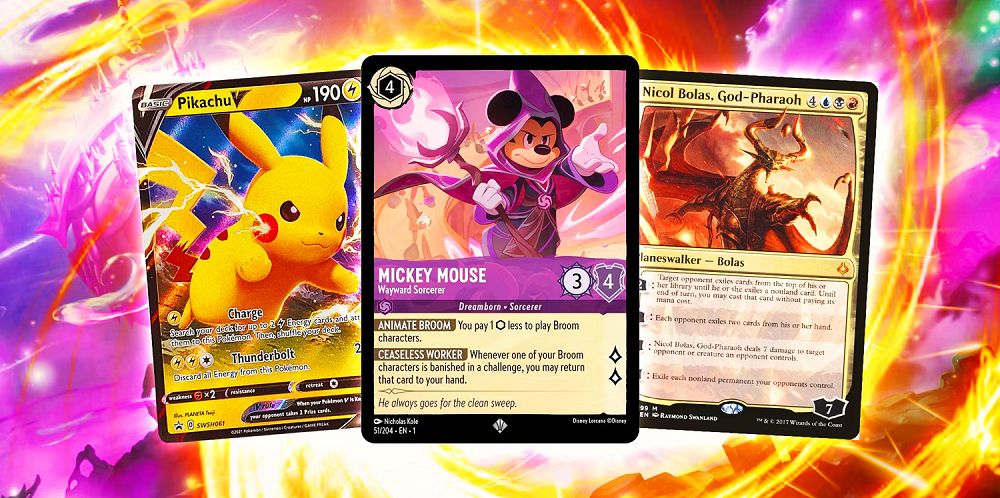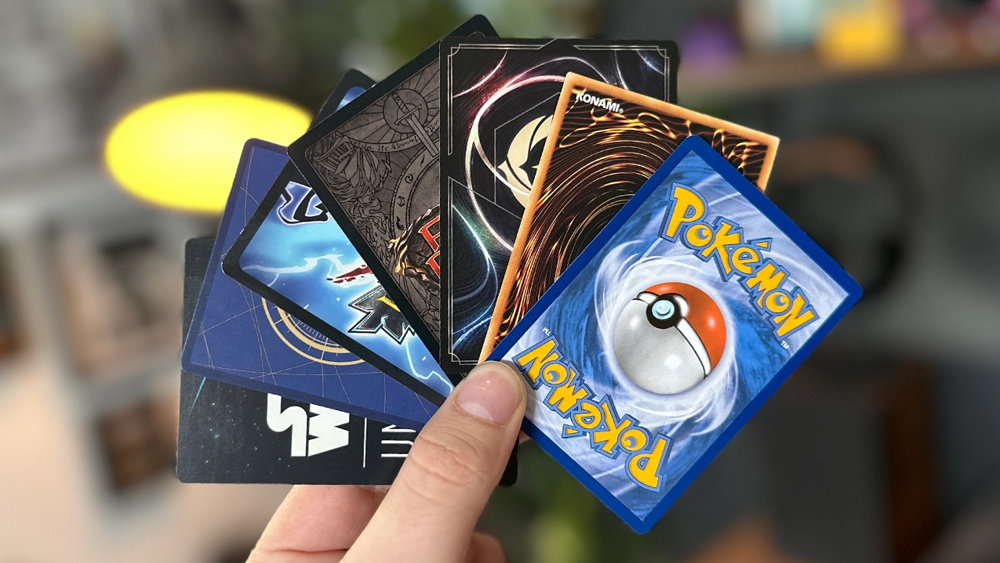Content Menu
● What Defines a TCG?
● Historical Evolution of TCGs
● The Birth of a Genre (1993–1995)
● The Pokémon Boom (1999–2004)
● Digital Integration (2010s–Present)
● Economic Impact of TCGs
● Cultural Significance
● Frequently Asked Questions
● How do TCGs differ from regular card games?
● What determines a card's value?
● Can TCGs be played casually?
● Are digital TCGs replacing physical ones?
● How do I start collecting?
● What role do TCGs play in social interactions?
● How do TCGs influence pop culture?
● How do TCGs impact mental health?
● The Future of TCGs
● Emerging Trends
● Impact on Education and Cognitive Skills
● Community Engagement
● The Role of TCGs in Pop Culture
● Frequently Asked Questions Continued
>> How do TCGs influence local economies?
>> Can TCGs be used as investment vehicles?
>> How do TCGs compare to other collectible hobbies?
Trading Card Games (TCGs) have evolved from niche hobbies to global phenomena, blending strategic gameplay with collectibility. This article explores their mechanics, history, economic impact, and cultural significance while addressing common questions about this unique genre.
What Defines a TCG?
A Trading Card Game (TCG) combines strategic deck-building with collectible elements. Players acquire randomized cards through booster packs or trades, then construct decks to compete against others. Key features include:
Rarity systems: Cards range from common to ultra-rare, incentivizing collection and trading.
Deck customization: Players optimize synergies between cards like Pokémon's Energy-attack mechanics.
Ongoing expansions: New card sets like Magic: The Gathering's "Fallen Empires" refresh gameplay.
Vintage Magic: The Gathering cards Example of rare TCG cards.
Magic Cards

Historical Evolution of TCGs
The Birth of a Genre (1993–1995)
Magic: The Gathering (1993) pioneered the TCG model, creating scarcity through limited print runs. Its success spurred competitors like Spellfire and Star Trek CCG, though many early games collapsed due to market oversaturation.
The Pokémon Boom (1999–2004)
The Pokémon TCG, launched alongside the anime series, became a cultural landmark. Its Scarlet & Violet and Sword & Shield series continue to dominate sales.
Pokémon 151 Series cards Artwork from Pokémon's 151 series.
Pokémon Cards
Digital Integration (2010s–Present)
Games like Hearthstone and Magic Arena digitized TCG mechanics, while hybrid titles like Pokémon TCG Live bridge physical and online play. This shift has expanded TCGs' reach, allowing new players to join without the initial investment in physical cards.
Economic Impact of TCGs
Secondary markets: Rare cards like Magic's Black Lotus sell for over $500,000.
Tournament circuits: Official events like Yu-Gi-Oh! World Championships offer million-dollar prize pools.
Publishing trends: 500+ TCG expansions released by 2002, with 20+ new games annually.
The economic impact extends beyond card sales to merchandise, media, and tourism. For example, Pokémon has become a global brand with movies, video games, and theme park attractions.

Cultural Significance
TCGs foster communities through:
Cross-media franchises: Dragon Ball and Harry Potter TCGs extend IP reach.
Art collectibility: Cards like Pokémon's Shiny Charizard become pop art symbols.
Educational tools: Games teach probability, resource management, and social skills.
TCG tournament scene Modern TCG tournament.
TCG Tournament
Frequently Asked Questions
How do TCGs differ from regular card games?
TCGs require collecting randomized cards to build decks, while traditional card games like Poker use fixed decks.
What determines a card's value?
Rarity, competitive utility, and artwork influence value. Limited-print cards often appreciate over time.
Can TCGs be played casually?
Yes! Pre-constructed decks like Pokémon's Battle Academy allow entry without extensive collecting.
Are digital TCGs replacing physical ones?
Digital versions complement rather than replace physical games, as seen in Magic's dual-platform success.
How do I start collecting?
Begin with theme decks from popular games, then trade duplicates at local game stores or online marketplaces.
What role do TCGs play in social interactions?
TCGs foster social connections through trading, tournaments, and online forums. Players often form lasting friendships and communities centered around shared interests.
How do TCGs influence pop culture?
TCGs contribute to broader pop culture narratives, as seen in Pokémon's global brand recognition. They also inspire fan art, cosplay, and fan fiction.
How do TCGs impact mental health?
Engagement with TCGs can provide stress relief and cognitive stimulation, enhancing mental well-being through strategic gameplay and social engagement.
The Future of TCGs
As technology advances, TCGs are likely to integrate more digital elements, enhancing accessibility and gameplay. The rise of hybrid models like Pokémon TCG Live suggests a future where physical and digital play coexist seamlessly. This integration could lead to more dynamic gameplay experiences and expanded player bases.
Emerging Trends
NFTs and Blockchain: Some TCGs are exploring blockchain technology to create unique digital cards, offering new ways to collect and trade.
Virtual Reality (VR) Integration: Future TCGs might incorporate VR for immersive gameplay, further blurring the lines between physical and digital experiences.
Cross-Platform Play: Games like Pokémon TCG Live allow players to compete across different platforms, fostering a unified community.
Impact on Education and Cognitive Skills
TCGs offer several educational benefits:
Strategic thinking: Players must analyze card interactions and plan moves ahead.
Probability and statistics: Understanding card draws and odds enhances mathematical literacy.
Social skills: Trading and competing develop communication and negotiation skills.
These cognitive benefits make TCGs a valuable tool for educational settings, promoting critical thinking and problem-solving.
Community Engagement
TCG communities are vibrant and diverse, with many players contributing through:
Fan art and cosplay: Inspired by card artwork, fans create their own interpretations.
Tournaments and events: Local and international competitions foster a sense of belonging.
Online forums and social media: Players share strategies, trade cards, and discuss new releases.
Community engagement is crucial for the longevity of TCGs, as it encourages innovation and loyalty among players.
The Role of TCGs in Pop Culture
TCGs have become integral to popular culture, influencing media and entertainment:
Movies and TV shows: Pokémon and Yu-Gi-Oh! have spawned successful franchises.
Video games: Many TCGs have video game adaptations or inspirations.
Merchandise: TCG-themed merchandise, from toys to clothing, is widely available.
This cross-media influence expands the reach of TCGs beyond traditional gaming audiences.
Frequently Asked Questions Continued
How do TCGs influence local economies?
TCGs can boost local economies through game stores, tournaments, and related businesses.
Can TCGs be used as investment vehicles?
Some rare cards appreciate in value over time, making them potential investment opportunities.
How do TCGs compare to other collectible hobbies?
TCGs offer a unique blend of gameplay and collectibility, distinguishing them from other hobbies like stamp collecting or sports memorabilia.































